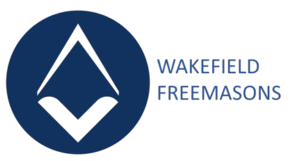Freemasonry is one of the oldest social and charitable organisations in the world. Freemasonry’s roots lie in the traditions of the medieval stonemasons who built our cathedrals and castles.
It is here that a number of the famous elements of Freemasonry find their roots. In the medieval era, stonemasons often travelled around to find work in different locations. To demonstrate their level of qualification, they would use grips, words and signs in order to distinguish themselves from unqualified builders.
Freemasonry uses building analogies to teach members how to lead productive lives that benefit the communities that they live in. In the medieval era, stonemasons wore aprons and gloves to protect themselves while working on shaping rough pieces of stone, but in today’s society Freemasons meet to build friendships and communities rather than cathedrals and castles.
The 4 Guiding principles of Freemasonry
For Freemasons, there are four important values that help define their path through life. In today’s world filled with uncertainty, these principles ring as true now as they have at any point in the organisation’s history. These principles are:
- Integrity
- Friendship
- Respect
- Service
Our Lodge meetings
Freemasonry is organised in smaller units of members, called Lodges, where meetings are held, and members meet together. A Freemason Lodge is a place where members will spend a significant part of their journey in Freemasonry and each member can freely choose the Lodge they wish to be part of.
Lodge meetings are normally held in two parts. The first part involves more administrative procedures, such as proposing and balloting for new members and receiving news about charitable fundraising. The second part focuses on ceremonies, which might relate to areas such as the admittance of new members or the installation of the Master of the Lodge and his officers – a process made up of three degrees, or stages, each marked by a special ceremony.
Our ceremonies are based around three principles that are still taught in our ceremonies today: look after those less fortunate, improve yourself and live life well so as to be remembered for the right reasons.
True to the sense of friendship and togetherness among Freemasons, meetings are also social events, providing an occasion for members to dine together. Outside of the Lodge, activities include community fundraising and volunteering activities, as well as a varied programme of events where spouses, partners and families are welcome.
The Three Degrees of Freemasonry
When a person is initiated into Freemasonry, they complete the First Degree. At this point, they become an ‘Entered Apprentice’. The First Degree ceremony reminds us that all are equal – it is the responsibility of those that do well to look after those less fortunate.
Upon completion of the Second Degree, a member becomes a ‘Fellowcraft Freemason’. This encourages members to better themselves through education and focuses on self-development.
After this, the member will then undertake the Third Degree. This ceremony teaches them how to use their life wisely and be remembered for the right reasons. On completion, they become a Master Mason.
The Ongoing Journey
We often say that you are a Freemason for life and that you have the rest of your life to learn about it. There are many lessons to be learned from Freemasonry, but they happen over time and depend on how you wish to progress in the order. After completing the Three Degrees you have the opportunity to join various side orders such as Royal Arch Masonry or Mark Masonry. Each side order expands on the teachings of the Three Degrees and adds various new elements to them.
Where will your journey take you?

INTERESTED?
Find out more about Freemasonry in Wakefield
